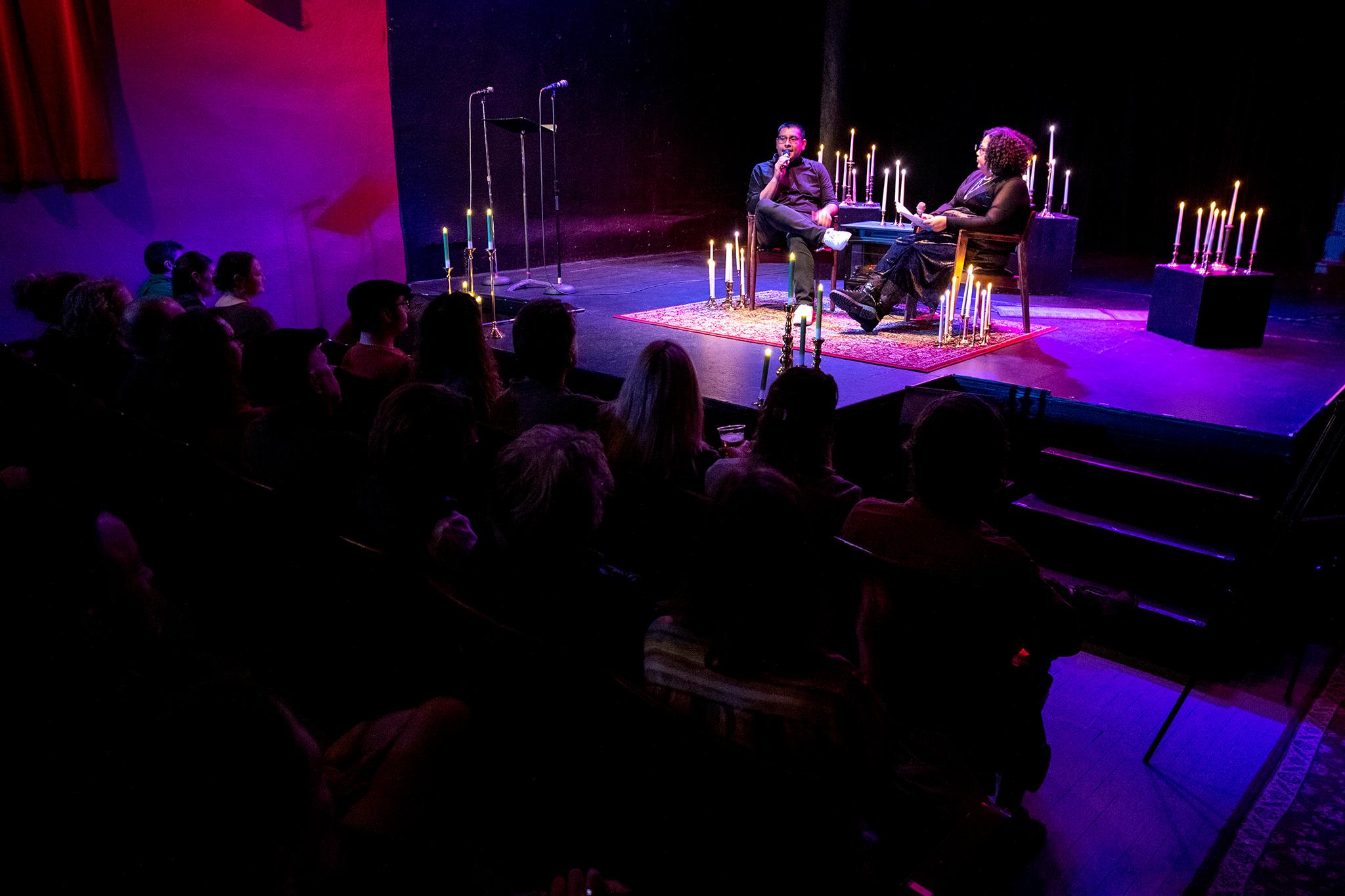Just in time for Halloween, Denverite brought four local writers to the Bug Theatre on Oct. 25 to tell us some scary stories.
For those who missed out on the fun, here's an archive of their chilling tales. If you really want to get into the spirit, you might also enjoy our Spotify playlist for the event (warning, some of these songs include explicit language).
Lindsay King-Miller told us she gravitated toward horror as a kid; her first exercises in creative writing were short tales inspired by "Goosebumps."
She became a writer as an adult, making a living as a freelance writer, mostly in culture and advice columns, until the freelance market shrank beyond being sustainable for her. In the void, she returned to the genre that got her interested in storytelling, and describes her work now as horror "with a queer twist." Her forthcoming novel, "The Z Word," is about zombies and Pridefest.
"Horror delves into these really deep and visceral emotions. And in some ways, I think that horror is the literary and cinematic genre that is best at portraying and helping us cope with grief and loss and really deep, dark feelings that everyone goes through," she said onstage. "It can be really cathartic, and it can also help us feel like we're a little less alone."
King-Miller said her DenverFright story, "Changeling," was a response to "Summer," by Tananarive Due: A tale of a mother whose baby is replaced with an imposter. Though the mother is unsettled by the switch, the new baby is quieter, and the mother can't help but feel relief. King-Miller delved into this setup, but pivoted the child's perspective, who feels disapproval from a mother who might never accept her.
D.L. Cordero told us their writing is rooted in the many intersections they represents, and generational struggles that their work aspires to overcome.
Their fantasy stories, often laced with elements of horror, first mean to give readers like them - who may be Afro-Latinx, Taíno or nonbinary - a chance to see themselves on the page.
"It's important to me to be represented in story, because being represented in story is such a powerful moving experience, especially when you feel isolated in the world and you don't see yourself represented," they said onstage. "My writing is intended to minimize that isolation that people feel, and to empower people to live their lives, execute their agency, be messy. You ain't gotta be that perfect minority. Make your choices, for better or worse."
They said they derive fictions, especially horror, from the remnants of historic injustices that still haunt society today; the story they brought to DenverFright is set in the colonization of their Indigenous Taíno ancestors. It's also a rumination on the scholarship of Michael Yellow Bird, who identified phases of trauma left by conquerors:
"Contamination and infection and harmful expression," they said, noting they count those conquerors in their own bloodline. "Harmful expression is where you're replicating the same harm caused to yourself. I think about that a lot, about the horror story that had to transpire for me to exist in this body at this time. Whose nature do I let win out? Who gets to win here? And that's what this story is all about except, on the bad end."
Josh Schlossberg said climate change inspires his work.
That, and the "ecological unraveling" he said is happening all around us. He's part of an "eco-horror" movement that he predicts will only become more popular as the world burns, like how zombies and vampires have flourished in our age of real-world contagion.
His book, "Charwood," is described as "ecological Jewish folk horror." His DenverFright story, "Creepy Old Dude," is a classic ghost story.
Manuel Aragon pulls his stories from his sense of home.
Denver's Northside, where Aragon grew up, has fueled his work.
His forthcoming book, "Norteñas," is a collection of short stories set in the neighborhood, "the people, ghosts and demons that live there."
"One of the things that I love about our neighborhood is that we're raw," he said onstage. "In that authenticity, it's filled with laughter and sorrow and joy, and I think in presenting that fullness, not only is it about telling my family's story, it's about acknowledging that we come from a culture that's so rooted in storytelling, and giving that nod to the neighbors who carry their histories with them."
His DenverFright reading, "Your Family Has a Secret," comes from "Norteñas."
"For me, the collection is about presenting the fullness of our people," he said. "I'm writing about the things I know, the people I know."












